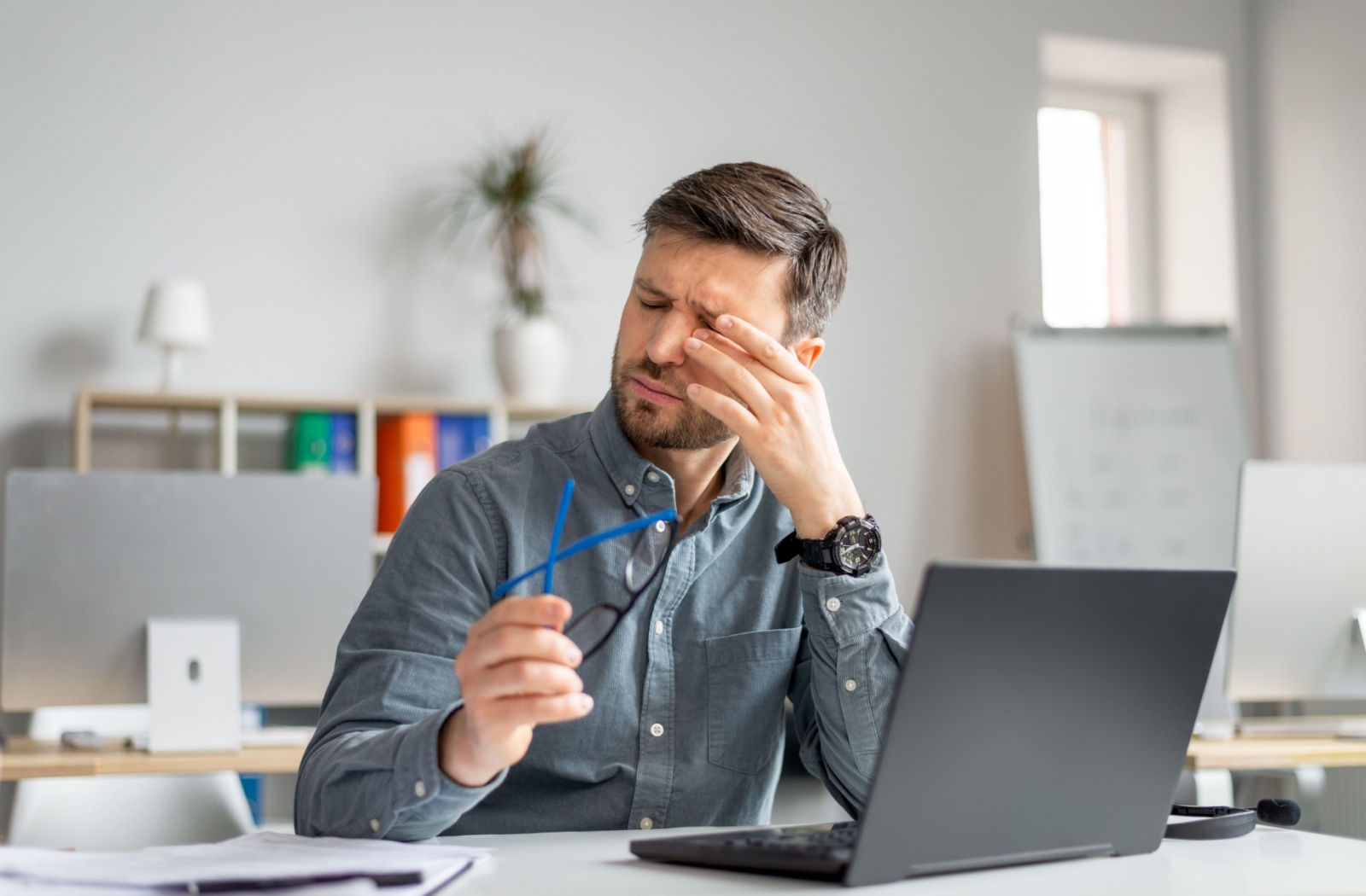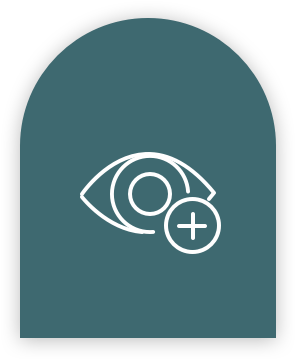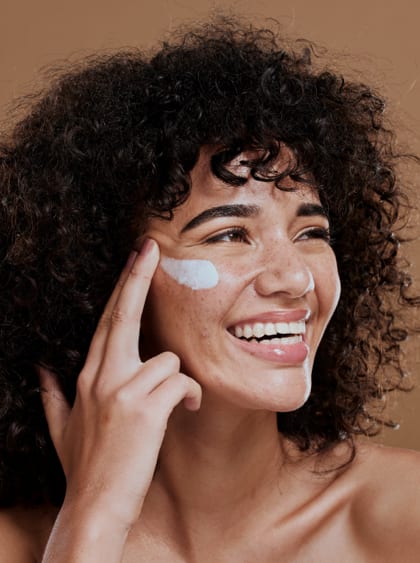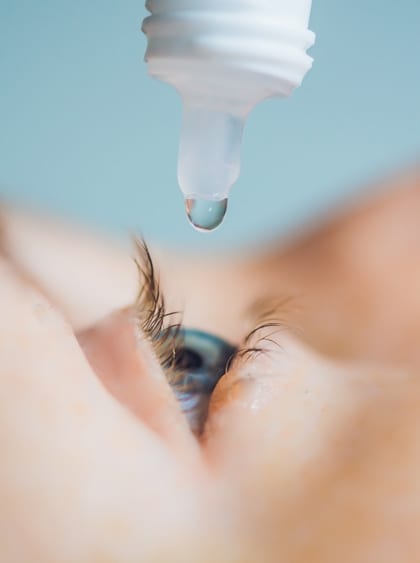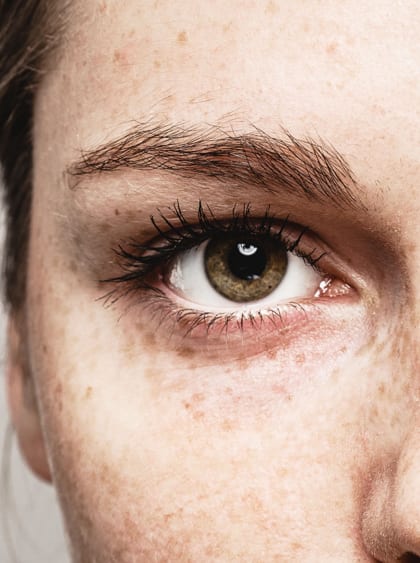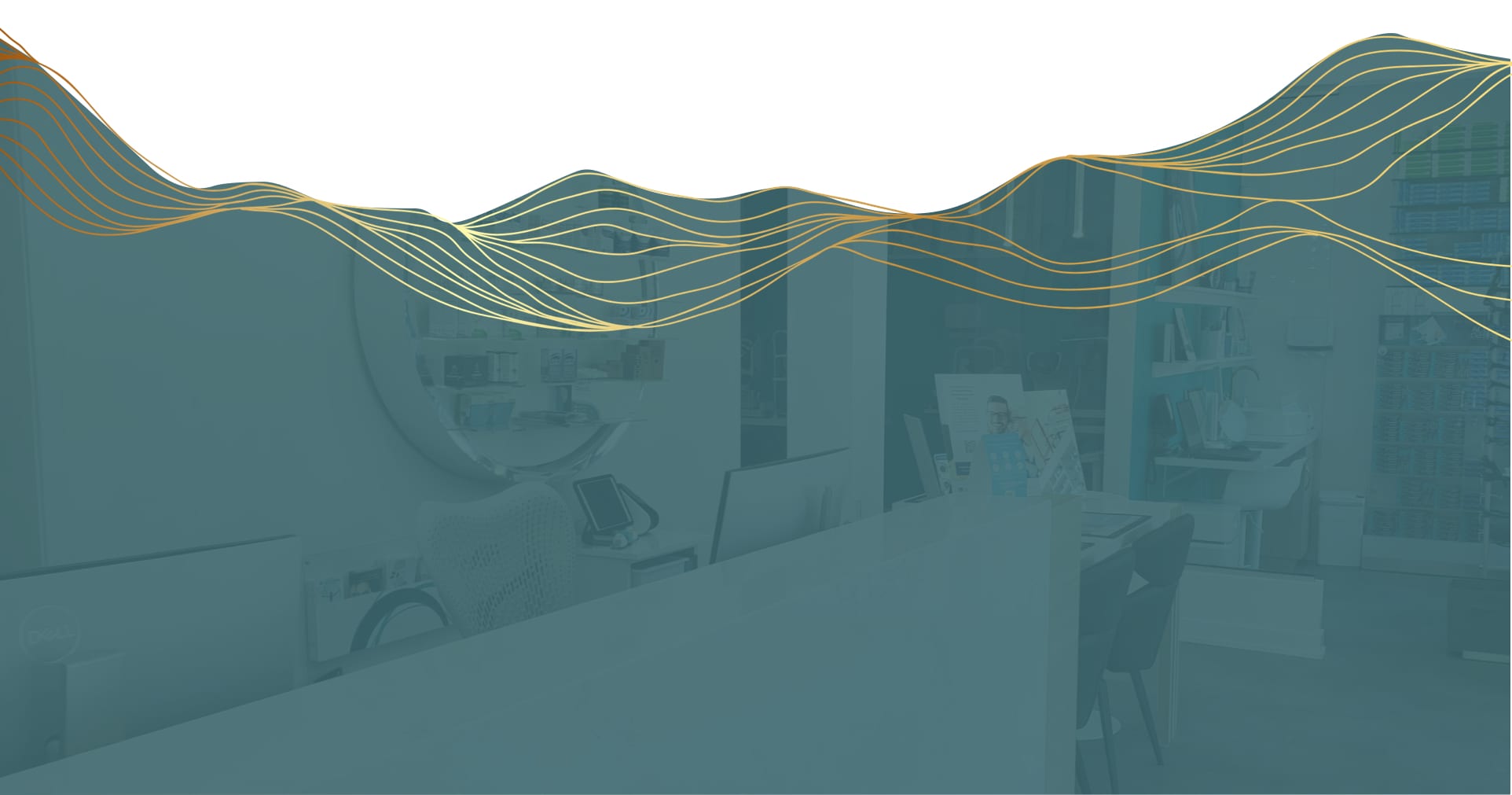If your eyes frequently feel irritated, you might be dealing with a condition known as dry eye.
Put simply, dry eye often feels like a persistent sandy or gritty sensation. However, it can also present as stinging, burning, or even fluctuating vision, blurry vision and excessive watering. A good indicator that your symptoms might be dry eye is when the feeling of discomfort doesn’t go away with a simple blink or a good night’s rest.
Common Signs & Symptoms of Dry Eye
You might have dry eyes if you experience a consistent feeling of discomfort that disrupts your day. The symptoms of dry eye often affect both eyes and can make simple tasks feel like a chore. People with dry eye often report one or more of the following issues.
- A stinging or burning sensation in your eyes
- A scratchy or gritty feeling, like something is in your eye
- Strings of mucus in or around your eyes
- Redness & irritation
- Sensitivity to light
- Difficulty with nighttime driving
- Discomfort when you wear contact lenses
- Watery eyes—the body’s response to the irritation
- Blurred vision or eye fatigue
- Fluctuating vision throughout the day
Why Your Eyes Feel Dry
Dry eye occurs when your tears are not able to provide enough moisture for your eyes. This can happen for a couple of main reasons. Either your eyes don’t produce enough tears, the tears they do produce evaporate too quickly, or they do not stick to your eyes properly.
How Your Tears Work
A healthy tear film has three distinct layers that work together to lubricate, nourish, and protect your eyes. An imbalance or deficiency in any of these layers can lead to uncomfortable dryness. A stable tear film is important for clear and comfortable vision.
- The Oily Layer: This is the outer layer, produced by small glands in your eyelids. It smooths the tear surface and slows down evaporation to keep your eyes moist. Using a warm compress can help support the function of these glands.
- The Watery Layer: This middle layer makes up most of what we think of as tears. It cleans the eye by washing away small particles and irritants.
- The Mucus Layer: This is the inner layer, which helps the tear film stick to the surface of your eye. It ensures that the watery layer spreads evenly across your cornea.
Common Causes & Risk Factors
Several factors can disrupt your tear film and lead to the uncomfortable symptoms of dry eye. Some of these are part of our daily lives, while others are related to our health or environment. Understanding the differences can help you identify potential triggers in your own routine.
- Age—tear production often decreases as we get older
- Hormonal changes in the body
- Certain medical conditions & medications
- Environmental factors like wind, smoke, or dry air from heating or air conditioning
- Extended screen time & other activities that reduce your blink rate
- Long-term use of contact lenses
What to Expect at an Eye Exam
At MEye Health, we can perform a comprehensive exam to understand the cause of your discomfort. This involves a few key steps to get a full picture of your ocular health.
Your Eye Health Discussion
At MEye Health, we’ll start by having a conversation about your symptoms and how they affect your daily life. We’ll talk about your general health, any medications you take, and your work and home environments. This discussion helps us uncover potential causes and contributing factors to your discomfort.
A Look at Your Tear Film
Next, we’ll take a close look at your eyes, eyelids, and how you blink. We may use special dyes and digital imaging including meibography to see your tears more clearly on the eye’s surface. These tests help us check both the quantity and quality of your tears to pinpoint any issues with your tear film.
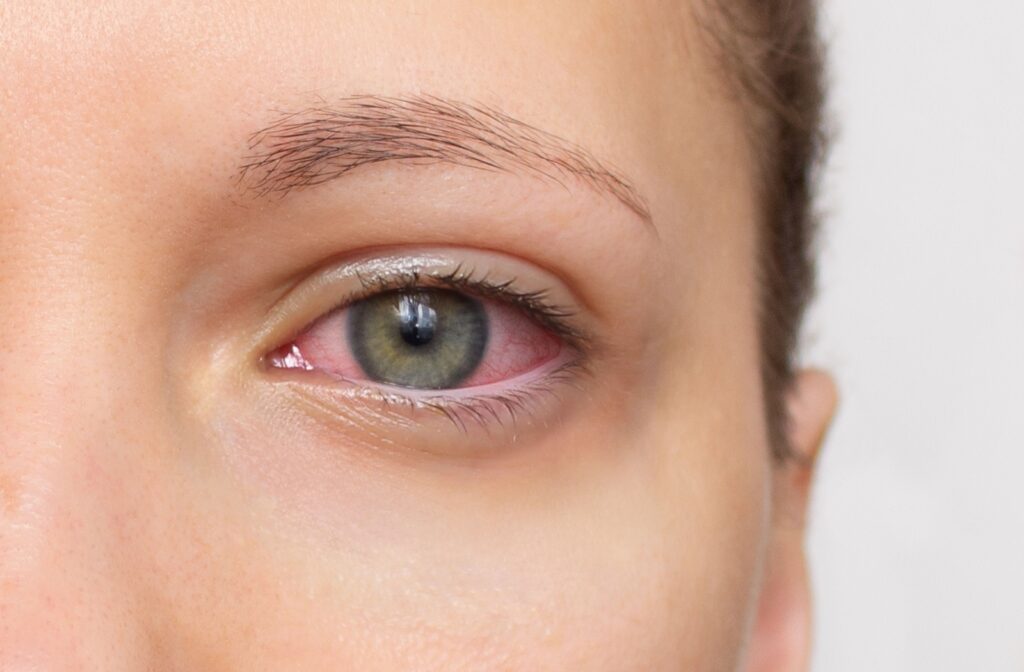
How You Can Manage Dry Eye Symptoms
You can find relief from dry eye symptoms through a combination of at-home adjustments and professional care. The main goal is to restore or maintain a normal amount of tears in your eyes. This helps reduce discomfort and keeps your eyes feeling and looking healthy.
Simple Lifestyle Adjustments
Making small changes to your daily habits and environment can have a positive impact on your eye comfort. These simple adjustments can help reduce symptoms and protect your eyes from irritants. Consider trying some of the following tips.
- Use a humidifier to add moisture to the air in your home or office
- Wear wraparound sunglasses outside to protect your eyes from wind & sun
- Take frequent breaks from screens by following the 20-20-20 rule, and remember to blink fully and often
- Position your computer screen below eye level to reduce tear evaporation
- Avoid smoke & air from fans or vents blowing directly into your eyes
Professional Relief Options
If lifestyle changes aren’t enough to manage your symptoms, our eye care team can suggest other options. These can range from simple over-the-counter solutions to prescription medications and in-office treatments. We offer dedicated dry eye therapy to provide more personalized relief.
Treatment options include:
- BlephEx
- Meibomian gland expression
- Intense Pulsed Light Therapy (IPL)
- Radiofrequency (RF) treatment
- Prescription Medications
The right approach depends on the underlying cause of your dry eye. A thorough examination helps us recommend the most suitable path forward.
Can Dry Eye Go Away on Its Own?
For some people, dry eye is a temporary issue caused by a specific situation, like a windy day or a long flight. In these cases, it often resolves once that situation changes. For many other people, however, dry eye is a long-term condition that benefits from ongoing management to keep symptoms under control and maintain comfort.
When to See an Optometrist in Burlington
If you have had prolonged signs of dry eye—such as red, irritated, tired, or painful eyes—it’s a good idea to schedule an appointment at MEye Health. As your optometrist in Burlington, we can perform a complete assessment to determine what is bothering your eyes. We can then recommend a personalized plan to help you find relief. At MEye Health, we’re here to listen and help you achieve clear and comfortable vision. If you’re tired of dealing with irritating eye symptoms, book your eye exam today, so we can help you get back to feeling your best.


